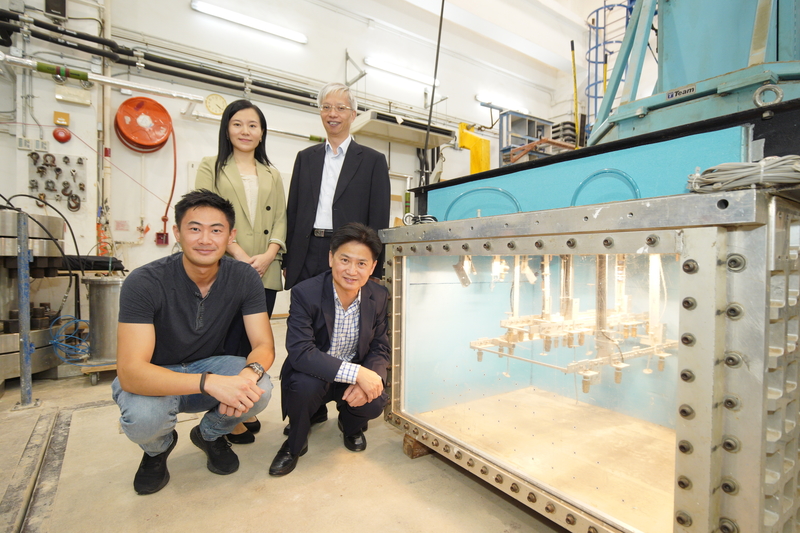
An international and multidisciplinary research team led by the Hong Kong University of Science and Technology (HKUST) was recently granted a research fund of HK$91.85 million by the University Grants Committee (UGC), according to a press release.
Under the leadership of the HKUST Associate Vice-President for Research and Development and CLP Holdings Professor of Sustainability, this project will deliver a comprehensive extreme weather and landslide warning system.
This novel system will increase the forecast lead time of heavy rainfall from three to six hours, thereby giving the general public and responders more time to prepare for potential disasters.
Institutions participating in this project include the Chinese University of Hong Kong, the Hong Kong Polytechnic University, the University of Hong Kong, and the Geotechnical Engineering Office and the Observatory of the HKSAR Government.
The HKUST-led project synergizes efforts by academia, practitioners and decision makers. The multidisciplinary team includes meteorologists, geotechnical engineers, geographic information scientists, and computer scientists.
The diverse set of disciplines will work closely together to produce a novel real-time weather prediction system and unique multi-source stereoscopic landslide monitoring system using AI and machine learning technology.
Such a system will set a benchmark internationally, specifically landslide-prone regions such as Brazil, Italy, Japan and countries along the Belt and Road.
Currently, many cities situated in mountainous regions, such as Hong Kong, are not prepared for the potentially devastating impact of unprecedented extreme rainstorms due to climate change. For example, if the 2008 rainstorm had bombarded Hong Kong Island instead of Lantau Island, the damage to infrastructure and potential loss of lives would have been unimaginable, the Professor stated.
It was noted that by increasing the forecast lead time for heavy rainfall, HKUST’s research team’s findings will give decision makers, authorities, and first responders more time to prepare, thereby enhancing the resiliency of the community of Hong Kong.
This landslide project is the largest of its kind funded by UGC in Hong Kong. The scope includes investigating slope failure mechanism and developing a new early landslide warning system.
The warning system will apply deep learning on data obtained from multiple stereoscopic sources, including remote sensing satellites. Furthermore, a newly-design multiple flexible barrier system and other green mitigation measures will be developed to mitigate landslides.
Another important aspect of this project is the establishment of a unique Center for Slope Safety. This centre will create an immersive environment to educate practitioners and the general public on slope safety via a Massive Open Online Courses (MOOC) platform, which will use emerging AR/VR technologies and narrative visualization. The educational component will enhance public awareness and knowledge transfer.
The study of landslide initiation and slope failure mechanisms will be conducted by a unique centrifuge environmental chamber, which was developed by HKUST.
This chamber can simulate the effects of various extreme weather conditions due to climate change on slopes. More importantly, the world’s largest flume model, 172 m in length, will be constructed in Kunming, mainland China, for modelling landslides and studying their interaction with barriers.
To establish a novel real-time extreme weather prediction system, the team will work closely with the Hong Kong Observatory to run a cloud-resolving model, which will double the forecast lead time of location-and-intensity-specific heavy rainfall.
The project, funded by UGC’s Areas of Excellence Scheme as well as HKUST, is expected to run for eight years.
















